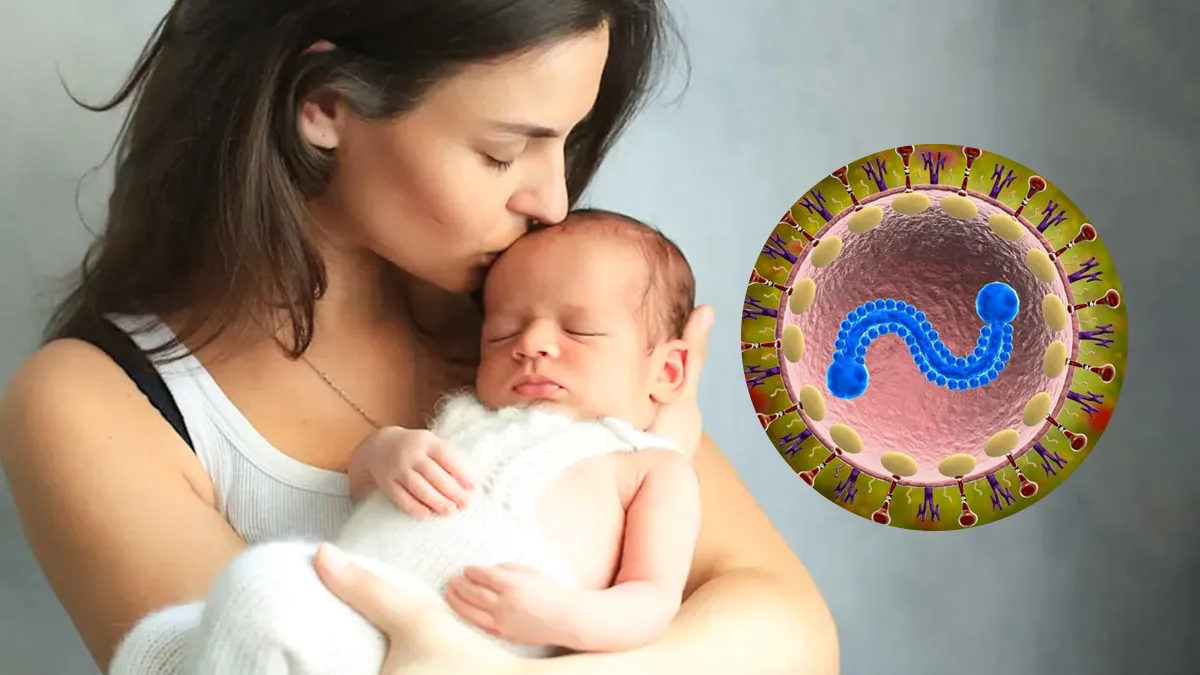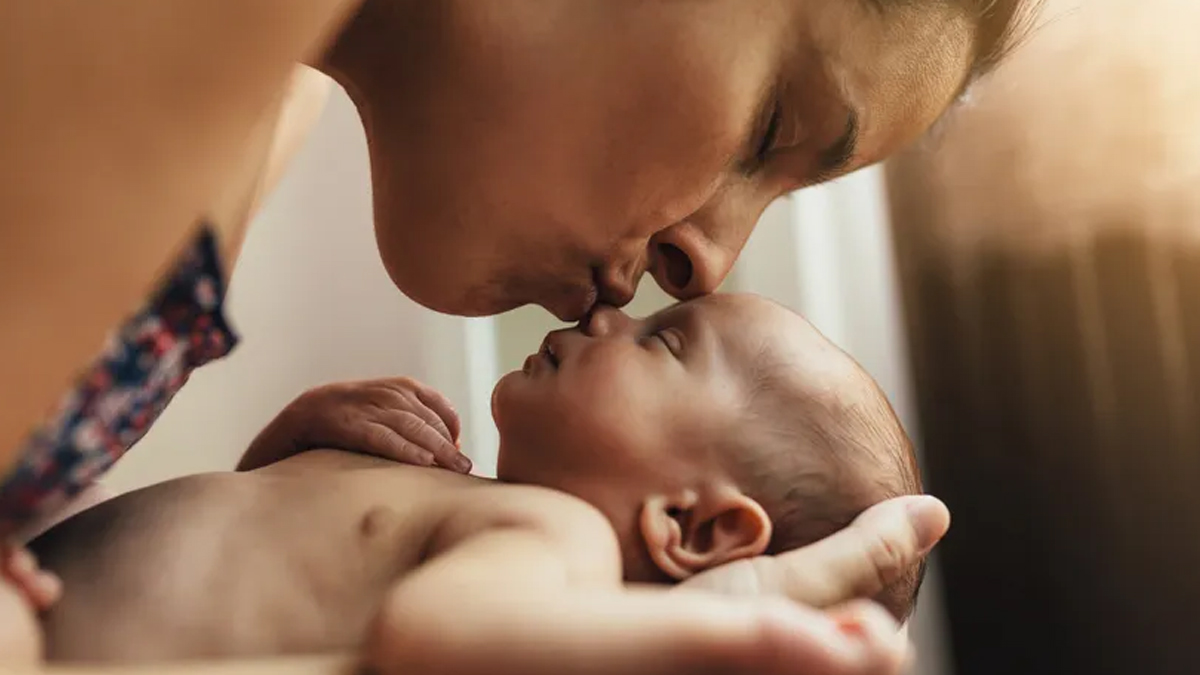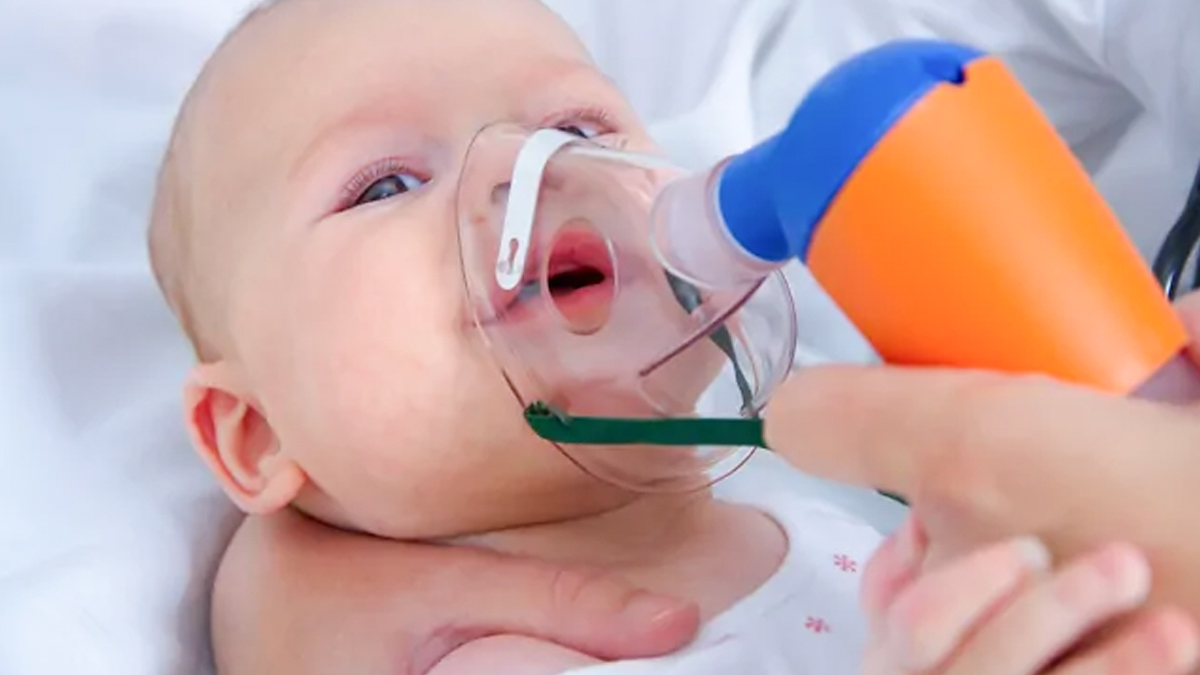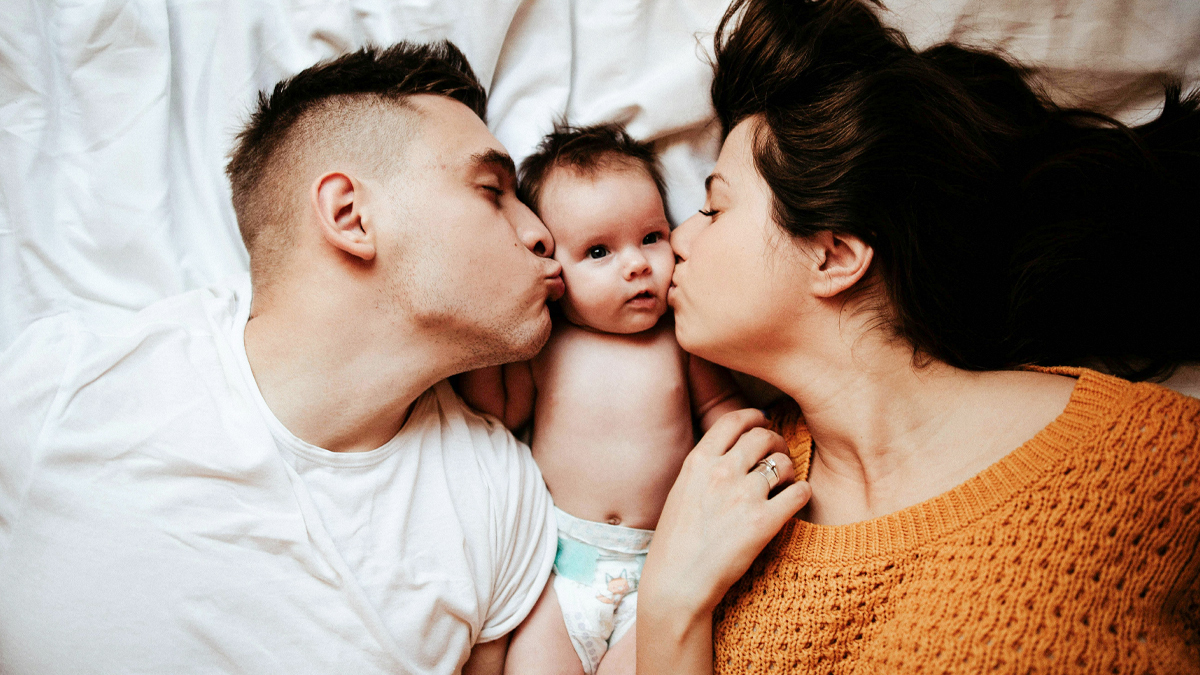
Everyone loves to shower babies with kisses to show affection. It’s a natural way to express love and joy when a newborn arrives. But many don’t realise that this innocent act can carry hidden risks. A new study now reveals that kissing babies may increase the chance of passing on respiratory syncytial virus (RSV) infection. It is a serious respiratory illness in young infants. Though adults may have mild symptoms or none at all, RSV can cause severe illness in babies who have developing immune systems.
Table of Content:-
What the Study Says About RSV Risk in Babies![kissing baby risks rsv infection 2 - 2025-09-12T133900.226]()
A large-scale study published in The Lancet Regional Health - Europe analysed over 2.3 million children born in Sweden from 2001 to 2022. The researchers found that even apparently healthy, full-term babies can become critically ill from RSV, requiring intensive care and long hospital stays.
The median age of the sickest infants was just under two months, emphasising how vulnerable very young babies are. Researchers wanted to find out how many previously healthy full-term babies ended up very sick from RSV.
Here’s what they found:
- About 1.7% of these kids were diagnosed with RSV.
- Of those, around 12% (that’s several thousand) had severe illness, like long hospital stays or needed intensive care.
- The youngest babies, under three months old, were especially vulnerable. Most severe cases were in this age group.
- Babies born full-term (i.e., not premature), who appeared healthy, without underlying disease, were among those who got severely ill.
- Some risk factors made things more likely: being born in winter, having young siblings (under 3 years old), or being small at birth.
How Kissing and Close Contact Might Play a Role![rsv infection baby 1 - 2025-09-12T133902.780]()
- When someone kisses a baby, especially near the nose or mouth, or breathes close, respiratory droplets (which may contain RSV) can be passed. Adults might not show strong symptoms or think it’s just a mild cold.
- Babies’ immune systems are still immature. Their lungs are small. Any infection can grow fast. That makes even “normal” germs more dangerous.
- Also, if siblings or visitors are carrying RSV (maybe before symptoms start), they can spread it unknowingly. Kisses amplify that risk.
When to Be Extra Careful & Prevention Tips![tips for parents 3 - 2025-09-12T133857.043]()
- Babies under three months are especially at risk. If you have a newborn, it’s wise to limit exposure.
- If you feel even a little sick (runny nose, cough, sore throat), avoid kissing or close contact. Hand hygiene helps a lot.
- Keep visitors minimal in the early weeks. Wash your hands, cover your face if coughing.
- Consider whether preventive treatments (like antibody therapies) are available in your region, especially during the RSV season. The study notes that in Sweden, from September 2025, preventive antibodies will be offered to all newborns during the RSV season.
What Parents Should Know
- Many babies who suffer severely from RSV were previously healthy. So it’s not enough to assume “my baby is fine, so no worries.”
- RSV isn’t just a “cold.” It can lead to breathing difficulties, dehydration, and need for hospital or intensive care.
- Awareness matters. Simple changes in how we behave around newborns can reduce serious risks.
ALSO READ: Ever Wondered How Newborn Babies Have a Tight Grip? Know About Palmar Grasp Reflex
Conclusion
Showing affection to babies through kisses feels natural and loving. But growing evidence suggests it can also carry risk, especially with a virus like RSV. The Swedish study underlines how even healthy, full-term infants under three months old can become severely ill. Simple preventive measures—like avoiding kisses from people who might be ill, practising good hygiene, and limiting exposure—can make a difference. As medical prevention tools improve, families and health systems may be better equipped to protect infants from RSV in early life.
Also watch this video
How we keep this article up to date:
We work with experts and keep a close eye on the latest in health and wellness. Whenever there is a new research or helpful information, we update our articles with accurate and useful advice.
Current Version
Sep 13, 2025 02:25 IST
Published By : Vivek Kumar


